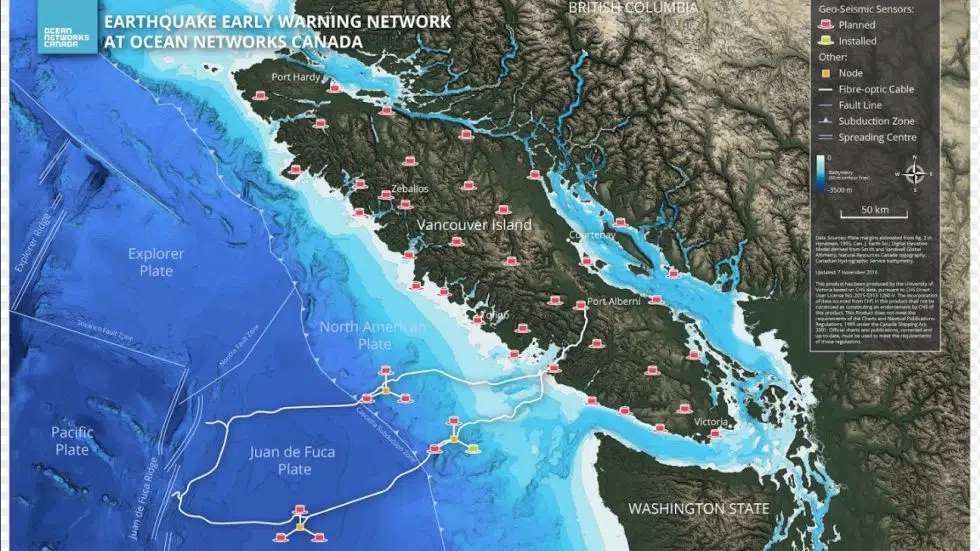
Early earthquake warning system in the works for B.C.
NANAIMO — Being warned a huge earthquake is about to hit seems like something out of a movie – but scientists are setting up a system for B.C. that will do just that.
Ocean Networks Canada business analyst Teron Moore said their scientists are installing nearly 40 land-based quake detection sensors on Vancouver Island and 12 on the Pacific Ocean floor near the Cascadia subduction zone.
He said this project is following through on a three-year, $5 million contract with the BC government to have this system set up by March 2019.
“If it were to occur off the coast of British Columbia you might expect in a place like Nanaimo to get like 30, 40 seconds warning before that shaking hit,” Moore said.


